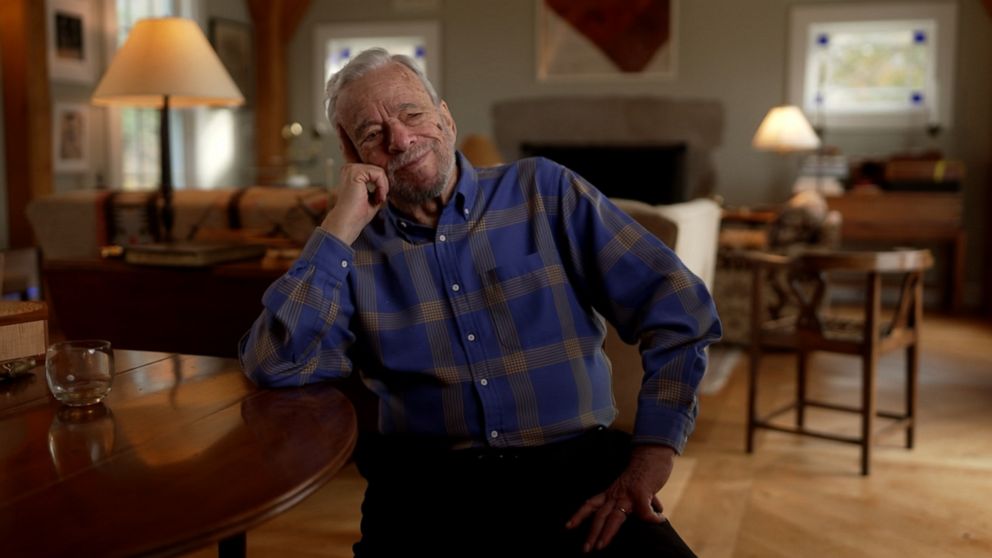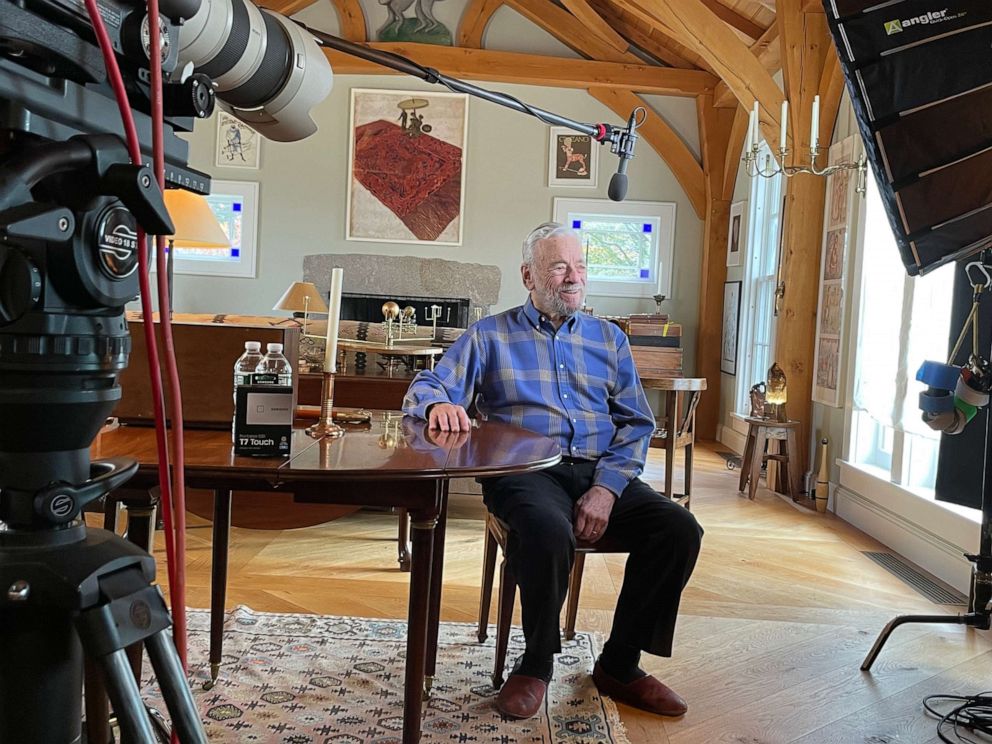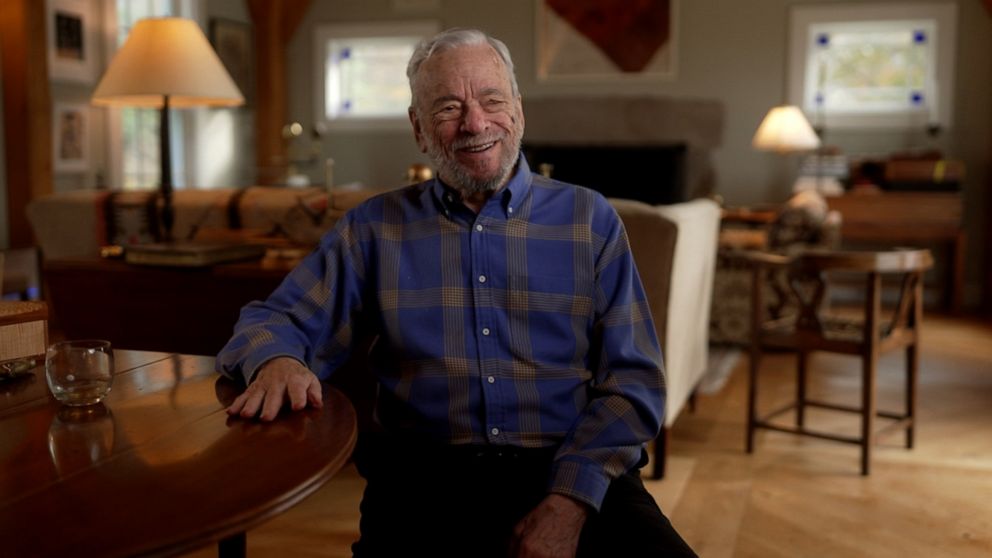One of Stephen Sondheim's last interviews: Reporter's notebook
Stephen Sondheim died at the age of 91.
Stephen Sondheim has done the masterpiece musicals of our age, and we were about to talk about one of his classics, "West Side Story."
Editorial producer Betsy Hill, who booked the interview, and I arrived to meet with Sondheim on Nov. 11.

Something’s Coming: West Side Story
‘Something’s Coming’ goes behind the scenes of Steven Spielberg’s ‘West Side Story’ remake.
As the crew were setting up, we fell into conversation. We talked about some of the things that surrounded us. The room was a feast of objects and art he’d collected from shows along the way. Victorian drawings from the era of "Sweeney Todd." A small Victorian photo chest that Burt Shevelove, the writer of "A Funny Thing Happened on the Way to the Forum," had given him.

When the cameras came on, it was much the same. He was clearsighted, warm. It felt like a conversation, not an interview.
‘Something’s Coming: West Side Story' is now streaming on Hulu.
He was excited about Steven Spielberg's reimagined version of "West Side Story," being released Dec. 10.
He thought Spielberg and screenwriter Tony Kushner would make the Jets grittier, "even though it's a musical, there's got to be some kind of menace,” Sondheim said.
It was frequently hard not to laugh. He told us how he got the job of lyricist on the original 1957 Broadway musical. He said he ran into Arthur Laurents, who wrote the show and had heard Sondheim’s music.

“I said just casually, 'Who's doing the lyrics?' and he said, 'Oh, I never thought of you,'" Sondheim said. "[Laurents] said, 'I didn't much like your music, but I thought your lyrics were really good,' so I got the job.”
I asked about where the songs began. He said he always started with getting into the character, the story the musical had invented.
"I always approach lyric writing as an actor would playing the part," he said. "Then I could find a title or a refrain line and expand from that and let the flower grow."
That’s where I blew it and said, “until it becomes a bouquet." He laughed and was quick to correct me.
“Lyrics are not poetry. Poetry is dense and depends on the abutment of words and thoughts and ideas and suggestions. But for theater, you've got to tell the audience exactly what's going on -- you got to under-write, not overwrite. And a bouquet is over-writing,” Sondheim said.

I asked him why his lyrics strike such a chord with so many different kinds of people. He told me the point is to make them universal.
“Why does 'Death of a Salesman' get to people so deeply?" Sondheim said. "There aren't an awful lot of salesmen in the audience. So why, you know? None of us have anything in common with those characters. Except we've got everything in common with those characters.
That's, as you know, the secret of any kind of narrative art," he continued. "There is something about the characters and the story that speak to you as a listener and that you can, to use that awful word, identify with, that move you."
I was brokenhearted to hear, just about two weeks later, that Stephen Sondheim had died. Our conversation was his last domestic television interview.
When I had asked him if "West Side Story" was groundbreaking because it was a musical that ended in death, he laughed and said, “Almost every opera ends in death."
"Death is a swell curtain for a story, you know, quote, 'the final curtain.' It’s a natural ending, a logical ending to a story,” he added.
It’s an amazing privilege we have as journalists – the chance to have real conversations with people who, like Sondheim, will be remembered forever. Every time someone sings along to one of his songs or walks into a theater to see one of his musicals, he will be there. I feel fortunate that for a couple of hours I was there, too.




